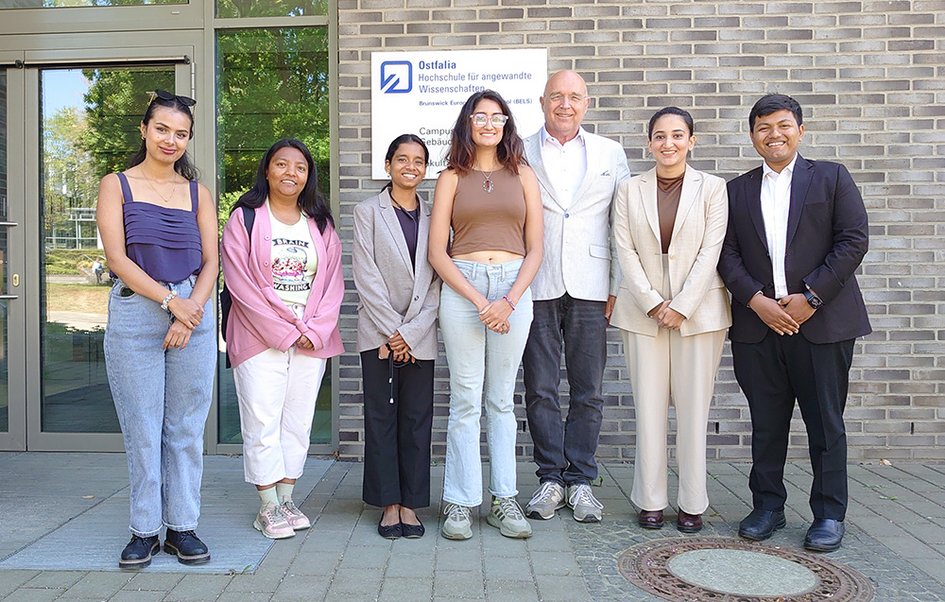On 13 May 2025, students from India and Nepal, participating under the DAAD-SDG Partnerships Project “Implementation of the Sustainable Development Goals – India, Nepal and Germany”, attended the conference titled “From Soft Law to Hard Impact? The Relevance of the Sustainable Development Goals on National and International Legal Orders”, conducted by Prof. Dr. Winfried Huck, Professor of International and European Economic Law at Brunswick European Law School (BELS), and a Fellow at Cambridge’s C-EENRG and the CISDL in Montreal.
In his address, Prof. Huck unpacked the evolving legal relevance of the United Nations Sustainable Development Goals (SDGs). Though originally conceived as non-binding soft law, the SDGs are increasingly influencing legislative and regulatory instruments across jurisdictions. Drawing from examples such as Germany’s Supply Chain Due Diligence Act, the EU Green Deal, and recent reformideas in international investment law, he illustrated how the SDGs are shaping domestic and international legal norms—redefining the boundaries between aspiration and obligation.
Students gained nuanced insights into the structural integration of the SDGs into legal systems at multiple levels—international, national, and regional. They learned how these goals now inform lawmaking, corporate governance, trade policy, and environmental regulation, thereby establishing a de facto normative framework for sustainable development worldwide.
The session also contextualized the SDGs within the recently adopted Pact for the Future by the UN General Assembly, affirming their enduring relevance in global governance. For many students, the experience provided more than theoretical understanding it offered a forward-looking legal perspective on how international cooperation, environmental responsibility, and human rights protection converge through law. What emerged was a powerful realisation: sustainable development is not only a policy objective, but a legal imperative in the making.
To learn more about the DAAD-SDG Partnerships Project “Implementation of the Sustainable Development Goals – India, Nepal and Germany,” please contact Dr. Ruth Areli García-León, Project Coordinator of the program.


